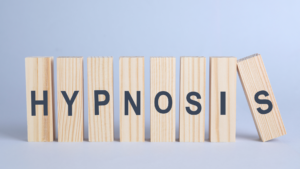Blaming oneself for every misstep or perceived shortcoming is a common issue many people face. It can lead to a cycle of negative self-talk, low self-esteem, and even depression. However, cultivating self-compassion offers a powerful way to break this cycle and foster a healthier, more forgiving relationship with oneself. Here’s how you can use self-compassion to stop blaming yourself for everything.
Understanding Self-Compassion
Self-compassion, as defined by Dr. Kristin Neff, involves three core components:
Self-Kindness: Treating yourself with the same care and understanding you would offer to a friend.
Common Humanity: Recognizing that mistakes and imperfections are part of the shared human experience.
Mindfulness: Observing your thoughts and feelings without judgment, allowing yourself to experience them without being overwhelmed.
Steps to Cultivate Self-Compassion
Acknowledge Your Pain
The first step in practicing self-compassion is to acknowledge your pain and suffering. Instead of brushing off your feelings or being harsh on yourself, take a moment to recognize what you’re experiencing. Say to yourself, “This is really tough right now,” or “I’m feeling hurt and that’s okay.”
Challenge Negative Self-Talk
When you catch yourself in a cycle of self-blame, challenge those negative thoughts. Ask yourself, “Would I say this to a friend in the same situation?” If the answer is no, reframe your thoughts with kindness and understanding. For example, instead of thinking, “I always mess things up,” you could say, “I made a mistake, but that doesn’t define me.”
Practice Self-Kindness
Treat yourself with the same kindness and care that you would extend to a loved one. Engage in activities that nurture and comfort you, whether it’s taking a warm bath, reading a favorite book, or simply taking a walk in nature. Self-kindness involves prioritizing your well-being and allowing yourself to rest and recharge.
Embrace Common Humanity
Remind yourself that everyone makes mistakes and experiences failure. It’s a natural part of being human. By acknowledging that others go through similar struggles, you can feel less isolated and more connected to the larger human experience. This can reduce feelings of shame and self-criticism.
Cultivate Mindfulness
Mindfulness involves being present with your thoughts and feelings without judgment. When you notice self-critical thoughts arising, observe them without getting entangled. Practice mindfulness techniques such as deep breathing, meditation, or simply paying attention to your senses. This helps you stay grounded and reduces the intensity of negative emotions.
Write a Self-Compassionate Letter
Writing can be a powerful tool for self-compassion. Write a letter to yourself as if you were writing to a dear friend who is experiencing the same difficulties. Offer words of understanding, empathy, and encouragement. This exercise helps shift your perspective and fosters a kinder inner dialogue.
Set Boundaries and Practice Saying No
Often, self-blame arises from taking on too much and feeling overwhelmed. Learn to set healthy boundaries and practice saying no when necessary. This is an act of self-compassion, as it prioritizes your mental and emotional well-being over the need to please others.
The Benefits of Self-Compassion
Practicing self-compassion can lead to numerous positive outcomes:
Reduced Anxiety and Depression: By being kinder to yourself, you can lower stress and improve your overall mental health.
Increased Resilience: Self-compassion helps you bounce back from setbacks and failures with a more balanced and positive outlook.
Better Relationships: When you stop blaming yourself, you can interact with others more openly and authentically, improving your relationships.
Enhanced Motivation: Self-compassion encourages intrinsic motivation and helps you pursue your goals without the fear of failure.
Self-compassion is a powerful antidote to self-blame. By acknowledging your pain, challenging negative self-talk, and embracing your humanity, you can foster a kinder and more supportive relationship with yourself. Remember, self-compassion is not about being self-indulgent or avoiding responsibility; it’s about recognizing your worth and treating yourself with the same kindness you would offer to others. With practice, you can stop blaming yourself for everything and cultivate a healthier, more forgiving mindset.
Source Credits: shazana_holistictherapist







